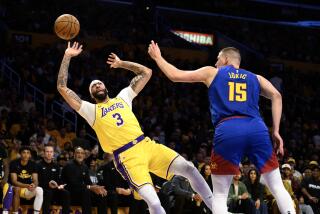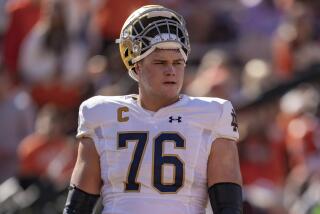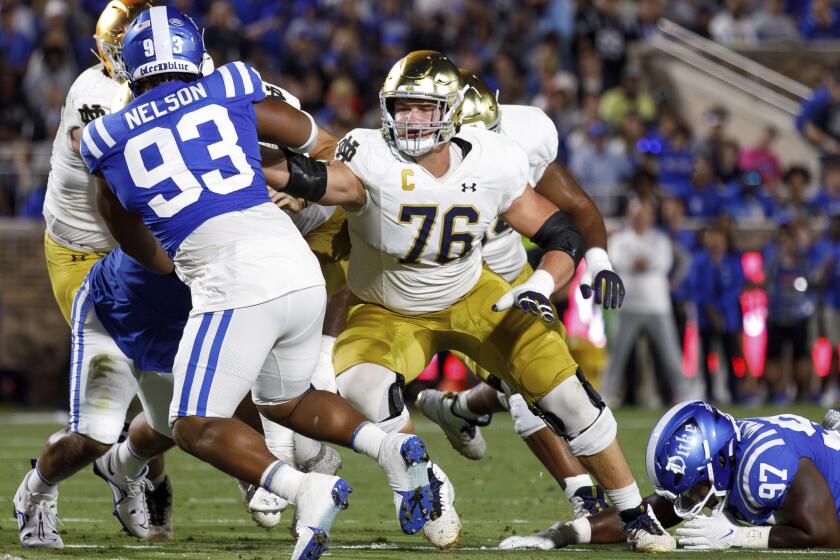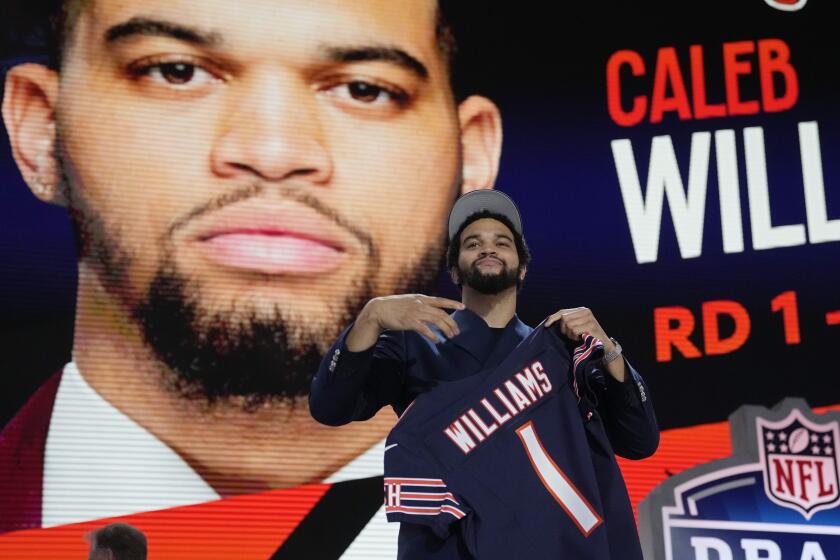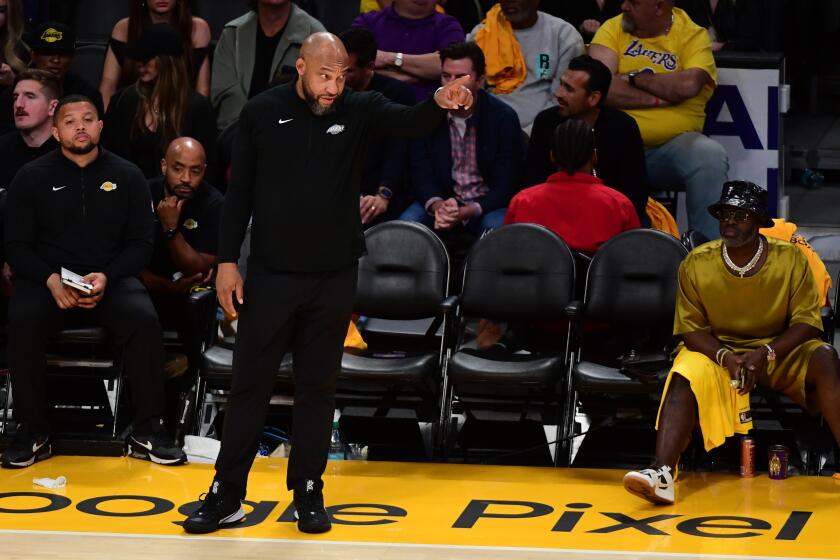Former NFL running back Roger Craig goes the distance
For professional football players, no other athletic achievement could possibly compare to winning a Super Bowl.
Or could it?
Former NFL running back Roger Craig says he’s found one that’s close: running a marathon.
A four-time Pro Bowl player and three-time Super Bowl winner with the Joe Montana-era San Francisco 49ers, Craig has run five marathons and says the wave of euphoria that envelops him at the 26.2-mile mark is virtually second to none.
“It’s the most enjoyable feeling on the planet because it’s something I did by myself,” he says. “I didn’t have a team around me. I set a goal, I stuck with it. As soon as I cross the finish line, I get this joyous feeling that’s hard to describe.
“It’s like winning the Super Bowl.”
Craig, 50, says his passion for running dates to his playing days, when he introduced teammate Jerry Rice and others to his distance-training regimen. It has only intensified since he retired from the NFL in 1993 after an 11-year career with the 49ers, Los Angeles Raiders and Minnesota Vikings.
“Running to me is everything,” he says. “It wakes me up, it motivates me. It keeps me alive. Without running, it’s like I’m not alive. It’s like I’m a walking dead, a walking stiff.”
Craig was no stiff with the 49ers, setting an enduring standard for versatility in running backs. A Pro Bowl selection as a fullback and running back, he excelled as a blocker, runner and receiver, providing a blueprint for multi-purpose backs who followed such as Marshall Faulk, Thurman Thomas and others.
In 1985, when he led the NFL with 92 receptions, Craig also was the first player to accumulate more than 1,000 yards rushing and more than 1,000 receiving in a single season.
“He’s fine receiving,” Bill Walsh, the late 49ers coach, once said of Craig, “but his running ability, one on one in the open field, is so outstanding that you find ways … to get him open.”
Labeling him a “clear-cut” Hall of Famer, Walsh called Craig “the future of what running backs would become.”
Craig says his versatility didn’t come naturally. As a fullback at Nebraska, he caught only 16 passes in four years. But he went to work honing his receiving skills, he says, after reading in a magazine that the 49ers were interested in drafting him.
A second-round pick in 1983, Craig says he was ready when then-49ers assistant Paul Hackett pulled him aside at his first rookie camp and threw him more than 100 passes.
He caught all but two.
“Right then and there,” Craig says, “Bill Walsh knew that I would be implemented into the passing game.”
Craig capped his second season by scoring three touchdowns in a Super Bowl rout of the Miami Dolphins, setting a Super Bowl record that has since been matched. Afterward, he says, Walsh told him he expected 1,000 yards from him the next season.
Says Craig, laughing, “I wasn’t sure what department he was talking about — was it the receiving part or the rushing? — so I said, ‘Let me cover my butt and do both.’ ”
In 1985, Craig accounted for 1,050 yards rushing and 1,016 receiving in a watershed season. Later, he won two more Super Bowl championships with the 49ers and might have won another if his late fumble hadn’t led to the New York Giants’ game-winning field goal in the 1990 NFC championship game.
In 11 NFL seasons, Craig never played on a team that failed to make the playoffs.
Nor did he suffer a major injury.
“Training played a big role in that,” he says. “A lot of times when you’re not conditioned, that’s when you get injured.”
In retirement, the 6-foot Craig has maintained his fitness, determined to avoid the health issues such as obesity, diabetes, heart disease and more that have bedeviled other former NFL players. A father of five, he says he weighs about 205 pounds, about 20 fewer than when he played in the NFL.
Craig, vice president of business development at TIBCO Software in Palo Alto and a Portola Valley resident, earned a black belt in taekwondo before tackling his first marathon.
“After I retired,” he says, “I had the opportunity to find myself a little bit and do some things I always wanted to do. That’s where the marathon came out of. I said, ‘OK, what’s next? I got my black belt; what’s next? Oh, the marathon: 26.2 miles. I think I can do that.’ And so I did it. And it keeps going.”
His goal is to qualify for the Boston Marathon, which means he’ll have to improve on his best time of 3 hours 48 minutes.
In the meantime, he is scheduled to run three shorter races in the next four months, starting with Sunday’s Dodge Rock ‘n’ Roll Los Angeles Half Marathon from Griffith Park to downtown.
He’ll spend less time sweating his possible election to the Pro Football Hall of Fame. Last year, after being eligible for 10 years, Craig was a semifinalist for the first time.
This year, he was a finalist.
“I’d love to get in there,” he says, “but Bill Walsh told me to be patient. He told me, ‘Your time will come.’ I don’t get my hopes up too high. I just keep my patience and let it run its course.”
For some, Craig knows, the process can be a marathon.
More to Read
Get our high school sports newsletter
Prep Rally is devoted to the SoCal high school sports experience, bringing you scores, stories and a behind-the-scenes look at what makes prep sports so popular.
You may occasionally receive promotional content from the Los Angeles Times.
